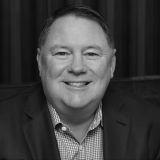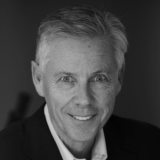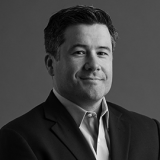The Future Finance Function: Meet the CFO of 2030
Insights from the Accordion Webinar
On Wednesday, September 23rd, Accordion invited a (virtual) roomful of private equity-backed CFOs to hear a curated panel of their peers discuss the evolving role of the CFO, and what it will look like ten years from now.
In addition to Accordion’s Nick Leopard and Hal Polley, panelists included Brian Gladden, an Operating Partner at Bain Capital who also served us our moderator; Tom Dowling, CFO of Banner Solutions; Bill Ingram, Former CFO of Avalara; and Mario Ramos, CFO and CRO of Edelman Financial Engines.
Here are a few of the learnings and lessons:
On Technology: Data
Most of what was learned about of the role of the CFO, today and tomorrow, can be summed up in one word: technology. Of course, unpacking that one word is a little more complex.
When asked about creating value across the next decade, the plurality of CFO webinar attendees (44%) believed that “driving tech transformation” will be the function’s most critical role. But, what they meant by that was not a singular software solution. It’s a whole host of tech-centric concerns and tech-enabling insights, most of which start and end with data.
“Ten years ago, the availability of data was probably the key issue. Now, it’s gone completely the other way. How do you herd massive amounts of data in a meaningful way? The CFO’s role is, and will be, about mastering data management.”
Panelists agreed that as data systems change and explode across the organization, it is critical that the CFO control and govern data interactions.
“As a whole, we don’t really know what to do with all that data. My pitch to the position is this: The data your salespeople need is different from the data your accounts payable people need and that is different from the data your engineering people need. The CFO must own data governance. It’s not to restrict. It’s just to get the right data into the hands of the people at the right level. It’s a way to distribute data to run the business effectively.”
“Data must be organized and accessed with supervision. It can’t be the wild, wild, West.”
Panelists universally agreed that data needs to be owned, harnessed, and governed. And, going forward, the CFO must be the entity owning those data controls.
Of course, it’s not only about control, it’s also about data content and what the CFO does with that content. CFO’s must be more expansive: identifying what kind of internal and external data drives the business and creating systems and repeatable processes to put some form around those activities.
“It can’t only be internal data anymore. We have to go to our customers and suppliers and request data. It’s looking at their data and using it as a leading indicator of what’s to come for us in the future.”
And once those data sets are defined, the CFO of the future needs to understand how to leverage them in order to become a business predictor, instead of a business reporter/recorder.
“As technology and data sources continue to evolve, the CFO’s role is going to be less around technical expertise and more around being able to communicate with the business in a way that turns data into insights and solutions, not just canned reports.”
“Historically CFOs and finance departments have reported on results and that’s still going to be critical and it’s not going away, but we need to have this office produce forward looking metrics and share those metrics with different internal stakeholders within the business. That’s the future of the function.”
On Technology: Machine Learning & AI
Of course, the CFO role isn’t just about the use of traditional data, it’s also about understanding the role of emerging technology to produce additional and informative data sets. And, it’s about investigating those technologies to understand where, how, and why to invest in them (and when not to).
“Let’s talk about machine learning and AI. My advice to CFOs is: Use it but don’t go after all the bells and whistles. Ignore the buzz. Use it to go after some very mundane, repeatable, and in-the-trenches requirements specific to the company.”
One panelist provided an example of a grocery store business. The sheer volume of product SKUs involved in that industry is not only astronomical, but the work required to catalog and identify those SKUs in order to set prices and make deals is overwhelming (and burdensome).
“We were really getting frustrated about how this one critical function unique to our company – that nobody else in the world cares about but us – how we just couldn’t get through it. And it was critical to our business and to driving revenue. So we acquired about two dozen engineers for the sole purpose of applying an AI/ML process to our SKU problem. The results of applying machine learning to that small and specific issue have been transformative for us.”
On Technology: The CIO
Questions about investments in emerging technologies like AI, are becoming more frequent, more important, and more expensive. The role that both the CFO and CIO will play in answering those questions over the long-term is critical. The key, for the CFO of the future, will be defining their distinct, before undefined, role:
“As I always say: it’s just software. It’s not good or bad. What we must do to judge it – to understand if it’s a good or bad investment – is to understand the kind of insights we can pull from it, and to work with CIOs to make informed decisions about whether those insights are worthy of the price.”
“CFOs can really help provide a framework for making these decisions up front and holding people accountable for what they are hoping to get accomplished by investing in these technologies.”
On Internal Partnerships
In addition to the role of technology, 24% of CFO attendees believed “moving from supporting to leading corporate strategy” will be critical to the role of the CFO in the future. An additional 9% of webinar attendees believed in the criticality of “strengthening internal business partnerships.”
Both can occur, said our panelists, when the CFO prioritizes providing insights to all different stakeholders within the organization:
“I started going out and giving financial overviews to different departments in the company, not just my colleagues around the executive table. I’d take them through our cash flow and I’d say, look, this cash is a result of the decisions we made. We invested here, we didn’t spend here. Sometimes I would do these via calls or Zooms. I thought I’d get 30 or 40 people dial in, but I had 800 people on the call.”
The idea of bringing additional stakeholders along on the finance and insight ride, is key, not only to the growth of the function, but to the fortunes of the organization.
“I think it’s going to be very, very important to democratize the detailed drivers of the business so that all of the people that are looking at data understand the decisions at play and how to make them. That’s what really impacts the bottom line and that’s what really makes the CFO play a key role in the strategy and outcomes of the organization.”
On Talent Strategy
11% of CFO webinar attendees believed “shifting talent strategy” would be key toward future CFO value creation. That shifting has never been more relevant that now, in the COVID economy, as the nature and expectations of how people work, and from where, have changed dramatically.
Our CFO panelists universally agreed as to the importance of embracing those changes in the search for tomorrow’s talent.
“I think people are going to come in for assignments. They’ll likely still be employees, but maybe they won’t be employees for as long, and they won’t physically be present. And so I think the whole hierarchy of organizations is going to change in response. Given that, my advice to CFOs is: you need to be much more of a mentor and an educator as opposed to being a hierarchical taskmaster.”
“I think we’re all seeing that it’s not going to be an all or nothing model in regard to working from the office or working from home. I envision this kind of hub scenario: you’ll have a headquarters or centralized office, but the remote workers will hub and spoke back and forth to the offices to get what they need and to access the support they need to be able to do their jobs. It’s a very different model than the fixed locations where we have planted people up to now. It’s a different cultural model and, for the CFO, it’s a different financial model with the potential for lower overhead costs.”
On The Next Black Swan Event
If 2020 has taught us anything it’s the certainty of uncertainty. Given the expectation of more perfect storms and business disruptions, the question is: how can the CFO of the future best navigate a company through the unknown?
“In a word: cash. I’m a big believer in cash on the balance sheet. If you’ve got a rock solid balance sheet, it buys you time to understand the new market landscape and respond effectively.”
CFOs on the whole believe that while it’s about having a cash cushion, it’s also about being close to the data.
“Those CFOs who were quickly able to extrapolate changes in customer behavior, who were close to the leading indicators in their supply chain, and who immediately had a view on what they could do with their cost structure – those were the CFOs who were ready for this crisis, and they will be the CFOs who can best navigate the next inevitable one.”





